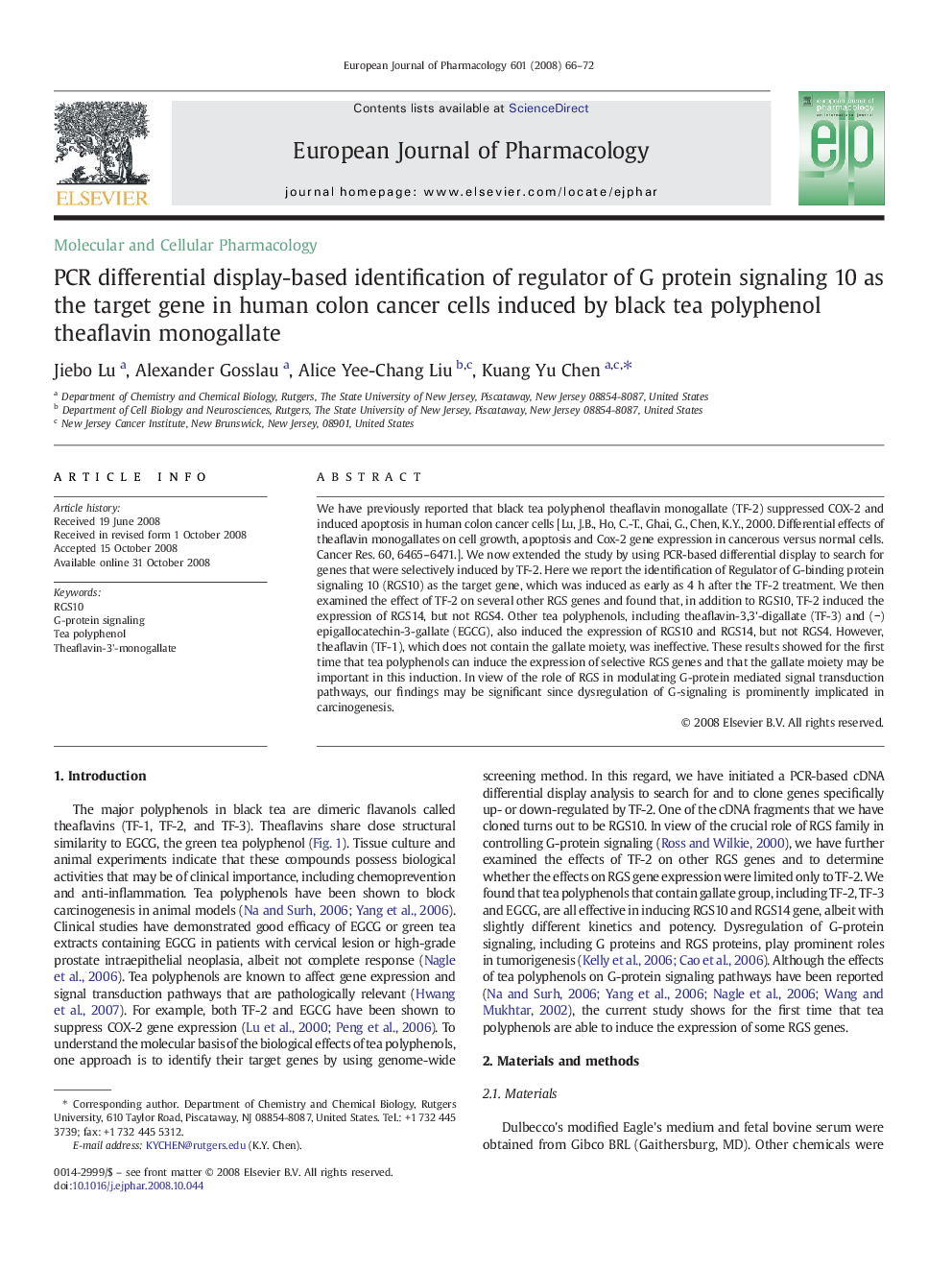| Article ID | Journal | Published Year | Pages | File Type |
|---|---|---|---|---|
| 2534691 | European Journal of Pharmacology | 2008 | 7 Pages |
We have previously reported that black tea polyphenol theaflavin monogallate (TF-2) suppressed COX-2 and induced apoptosis in human colon cancer cells [Lu, J.B., Ho, C.-T., Ghai, G., Chen, K.Y., 2000. Differential effects of theaflavin monogallates on cell growth, apoptosis and Cox-2 gene expression in cancerous versus normal cells. Cancer Res. 60, 6465–6471.]. We now extended the study by using PCR-based differential display to search for genes that were selectively induced by TF-2. Here we report the identification of Regulator of G-binding protein signaling 10 (RGS10) as the target gene, which was induced as early as 4 h after the TF-2 treatment. We then examined the effect of TF-2 on several other RGS genes and found that, in addition to RGS10, TF-2 induced the expression of RGS14, but not RGS4. Other tea polyphenols, including theaflavin-3,3'-digallate (TF-3) and (−) epigallocatechin-3-gallate (EGCG), also induced the expression of RGS10 and RGS14, but not RGS4. However, theaflavin (TF-1), which does not contain the gallate moiety, was ineffective. These results showed for the first time that tea polyphenols can induce the expression of selective RGS genes and that the gallate moiety may be important in this induction. In view of the role of RGS in modulating G-protein mediated signal transduction pathways, our findings may be significant since dysregulation of G-signaling is prominently implicated in carcinogenesis.
